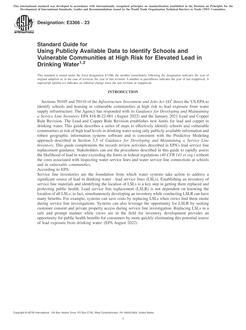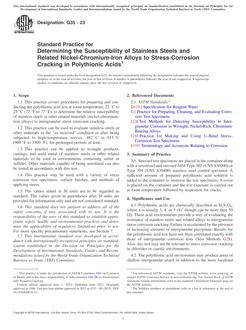
ASTM E3366-23
1.1 As the General Accountability Office (GAO) reported in 2018 (2), the discovery of toxic levels of lead in drinking water in Flint, Michigan in 2015 renewed awareness about the risks that lead poses to public health. Exposure to lead can result in elevated blood lead levels and negative health effects. Children are at particular risk, because their growing bodies absorb more lead than adults, so protecting them from lead is important to lifelong good health. According to the Centers for Disease Control and Prevention (CDC), elevated blood lead levels have been linked to anemia, kidney and brain damage, learning disabilities, and decreased growth. As a result of widespread human use, lead is prevalent in the environment; for example, it can be found in paint (lead in paint was banned in the United States in 1978)4 and soil, and can leach into drinking water from lead-containing plumbing materials, such as faucets and drinking fountains.
Product Details
- Published:
- 05/01/2023
- Number of Pages:
- 5
- File Size:
- 1 file , 280 KB
- Note:
- This product is unavailable in Russia, Ukraine, Belarus

